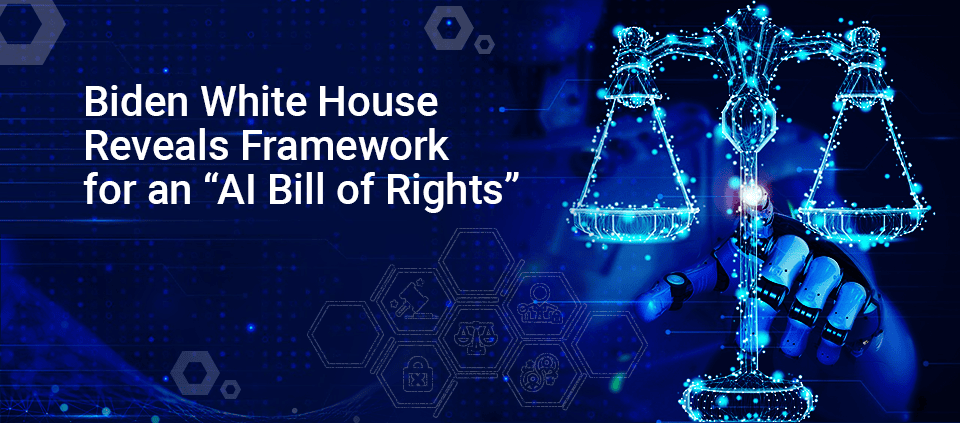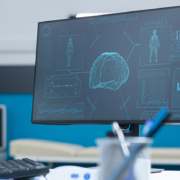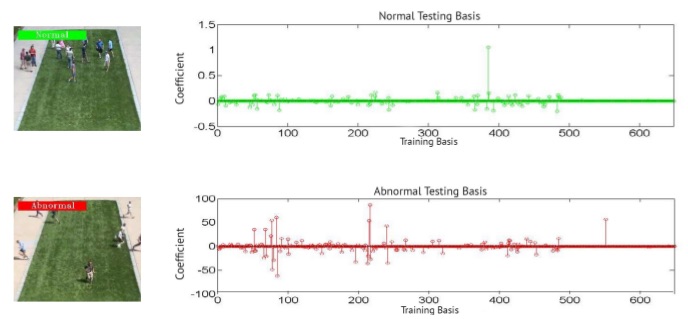Biden White House Reveals Framework for an “AI Bill of Rights”
Artificial Intelligence has been promising to revolutionize healthcare and several other industries for a long time — and by all evidence, the revolution, while still in its infancy, has arrived. If you are not sure, just ask Siri!
Seriously, AI and machine learning are already having major impacts across many industries, not the least of which is healthcare, where AI is already radically shifting the way healthcare is delivered, streamlining operations, improving diagnostics, and improving outcomes.
However, not surprisingly, the growing ubiquity of AI is raising some concerns about privacy and other issues in the way that users interact with AI algorithms. So much so that the Biden administration has recently launched a blueprint for an “AI Bill of Rights” to help ensure the ethical use of AI. Not surprisingly, it is modeled after the sort of patient “bills of rights” people have come to expect as they interact with doctors, hospitals, and other healthcare professionals.
The blueprint outlines five basic principles:
1. Safe and effective systems
2. Algorithmic bias protections
3. Data privacy
4. Transparency and explanation
5. Human alternatives and backups
These basic principles are meant to provide a framework or “guidance” for the US government, tech companies, researchers, and other stakeholders, but for now, it is important to point out that the blueprint represents nonbinding recommendations and does not constitute regulatory policy.
Such regulations will undoubtedly be taken up by Congress in the not-too-distant future. But for now, the guidelines have been designed to apply to AI and automated tools across industries, including healthcare, and are meant to begin the dialogue around a much-needed larger conversation on the ethical use of AI.
The core concept behind the five guiding principles is for Americans to feel safer as they increasingly interact with AI, particularly in the healthcare setting. With such guidelines in place they can feel confident that they are being shielded from harmful or ineffective systems; that they will not face bias or inequities caused by AI; and they will be protected from abusive data practices via built-in safeguards and transparencies over how their data is used.
The fifth principle is an important one. It ensures that Americans receive a complete understanding of how the AI works and is being used and offers the option to “opt-out” and interact with a human interface instead, where practical and appropriate.
“Considered together, the five principles and associated practices of the Blueprint for an AI Bill of Rights form an overlapping set of backstops against potential harms,” the document concludes. “This purposefully overlapping framework, when taken as a whole, forms a blueprint to help protect the public from harm. The measures taken to realize the vision set forward in this framework should be proportionate with the extent and nature of the harm, or risk of harm, to people’s rights, opportunities, and access.”
Rohit Mahajan is a Managing Partner with BigRio. He has a particular expertise in the development and design of innovative solutions for clients in Healthcare, Financial Services, Retail, Automotive, Manufacturing, and other industry segments.
BigRio is a technology consulting firm empowering data to drive innovation, and advanced AI. We specialize in cutting-edge Big Data, Machine Learning, and Custom Software strategy, analysis, architecture, and implementation solutions. If you would like to benefit from our expertise in these areas or if you have further questions on the content of this article, please do not hesitate to contact us.









